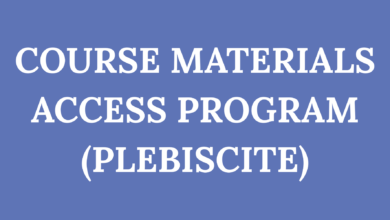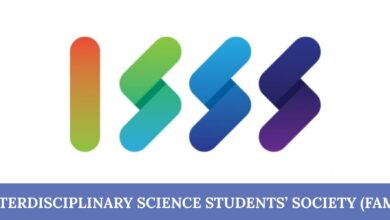Peak enrolment in Computing Science causing delays in graduation, inability to register in prerequisite courses
 Christina Varvis
Christina VarvisChristopher Saunders hopes to go into game design after he graduates. As a computing science student, enrolling in classes has been “tight.” Last semester, he couldn’t even get into his database management course. Hoping a space would open up, Saunders showed up on the first day. Others had the same idea — with around 90 spaces in the class, about 130 hopeful students showed up.
“By the time class started there were people sitting in the aisles and lined up against the back wall,” Saunders said.
The total amount of students on wait lists for computing science courses was the more than 900 this fall. Students are facing delayed graduation dates because they can’t get into required courses, or prerequisites for required courses. There’s only one piece of advice for those waiting: “Refresh Bear Tracks.” A frustrated Saunders said he might not graduate on time if he can’t get into the right courses.
The recent shortage of seats and delays in graduation in the Department of Computing Science is the result of a rising interest in the department. Several years ago, there was no such thing as an endless wait list. But computing science enrolment is at a peak right now, with a total of more than 4,500 students in classes, which is up from 3,300 in 2011, Paul Lu, Associate Chair of Computing Science said. Simultaneously, the amount of teaching staff has decreased.
“Our discipline goes through these cycles,” Lu said. “There’s 15- to 20-year-long cycles, where at our peak we’ve got people beating down our doors to get into our programs.”
The University of British Columbia is experiencing a similar surge in computing science enrolment, with enrolment doubling over the past five years. Their response has been to make 2016 computing science applicants take a general year of science rather than allowing direct entry from high school. Lu doesn’t foresee the U of A taking a similar approach as UBC, but there is still the challenge of finding enough resources to teach students.
“It’s good to be popular,” Lu said. “But it’s nicer to be popular when it’s easy to have the resources and the people to teach (all of the students.)”
The Department of Computing Science lost three faculty members with the U of A’s voluntary severance program in 2013. Overall, the number of faculty members has shrunken from high 40s to high 30s. With fewer faculty members, the department has combined class sections or and hire sessionals to teach 15 to 20 courses, depending on budgeting. There isn’t money to hire more faculty, or build more classroom space.
Budget constraints leave Lu, the Department of Computing Science and the Faulty of Science “few levers to pull.”
“The bottom line is if we’re going to have more students, we need more resources,” Lu said.
Consolidated courses include CMPUT 291 (Introduction to File and Database Management), which has usually taken roughly 120 students divided into two 60-student sections. This year, only one section held all 120 students. That change noticeably affects the classroom experience, and increases the difficulty for instructors to facilitate active learning in during class time.
Larger course sizes also make it difficult for instructors to reach out to struggling students unless they come to office hours, which is very uncommon, CMPUT 291 instructor Davood Rafiei said.
“I used to know students in my class,” Rafiei said. “As the class size gets bigger, I know less students … I don’t feel good because I should be able to support my students.”
Fourth-year computing science student Jordan Vogel was hoping to take CMPUT 301 and CMPUT 291 this year, but was unable to enroll. Vogel would spend his day at the computer, constantly refreshing his Bear Tracks, hoping the “little yellow diamond would turn into a green circle.” It never changed. Refreshing the page was the only tip his academic adviser could give.
There were more people on the wait list than in the class, Vogel said. Not getting into the lower-level prerequisites pushes back graduation.
“It’s like not being able to get into a grammar class if you’re doing linguistics,” Vogel said. “So you’re studying how languages work but you can’t learn about the syntax.”
The future of Vogel’s degree is difficult to predict and plan. He’s hoping to graduate in a year, but if he continues to have problems with registration, he may be in university for two more years.
“If you fail a class, or you drop a class, it’s upsetting but it was your doing,” Vogel said. “When it’s out of your control if you get into a class or not, you’re just seeing where the wind takes you.”
Part of the department’s solution has been to give honours and specialization science students priority in registering for courses, as they have stricter degree requirements. But this still squeezes out general science students, which will hopefully be addressed in the future, Lu said. Another solution to restricted space might be to offer senior-lever computing science courses in the Spring and Summer terms, though the thought is still preliminary, Paul Lu said.
“On one hand, I’m extremely sympathetic to the students who can’t get into a class,” Lu said.
“But on the other hand, we’re teaching quite a bit more students with fewer people and the same physical space in terms of classrooms.”





Please follow up on this article, and try to ensure that University does something to address this problem, as the current situation is ridiculous. You would be doing a service on behalf of all computing science students.
As a BSc with major in CS we are treated as 2nd class students. They allow 1st, 2nd, 3rd and 4th year honours and spec students enroll a month in advance. Engineers get reserved spots. Then Majors get about 7 days to enroll as a group before anyone else can enroll in 300- 400 level classes. Half of the classes this upcoming year are not being offered or only have <40 spots. One of the 17 classes is only for spec/honour students. That means I still need to take 1/3 of the 300-400 CS courses which are all full by the time I can enroll as a 4th year student and I have to compete with all 2nd,3rd,4th year students who have the prereqs and any honour or spec student who wants to take the course. Spot holding is used by friends of general students to get them in the courses. One year people where selling spots. But hey lets keep taking people in and basically saying good luck graduating.
AGREE!!!!!!!!